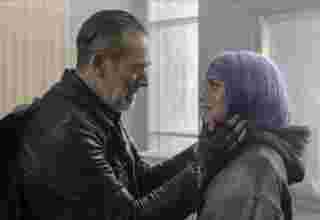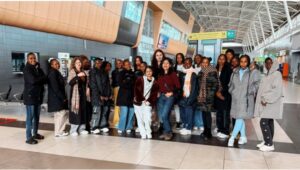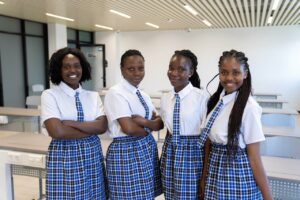The heir to the throne also said it was up to individual countries to decide if they will keep the Queen as head of state or become republics in the future

Prince Charles
CHOGM Opening Ceremony at Kigali Convention Centre, Rwanda – 24 Jun 2022
On arrival, Their Royal Highnesses will be welcomed by the Chief of Protocol for the Government of the Republic of Rwanda, The President of the Republic of Rwanda His Excellency Paul Kagame and The First Lady Her Excellency Jeanette Kagame. The Commonwealth Secretary-General The Right Honourable the Baroness Scotland of Asthal and Mr. Richard Mawhinney and The Prime Minister of the United Kingdom The Right Honourable Mr. Boris Johnson M.P. and Mrs. Caroline Johnson will also be introduced to Their Royal Highnesses before proceeding into the Auditorium for the Opening Ceremony. The Prince of Wales will take his seat on the stage while Her Royal Highness will take a seat in the front row of the audience. The Rwandan National Anthem is played before a few words are given by The President of Rwanda and The Commonwealth Secretary-General. Two cultural performances will also be performed by local young people before the UK Prime Minster and The Prince of Wales say a few words on stage
Prince Charles is addressing the shame of Britain’s role in slavery.
In the opening speech at the Commonwealth Heads of Government Meeting in Kigali, Rwanda, on Friday, the Prince of Wales expressed his “personal sorrow” over slavery as he urged that “we find new ways to acknowledge our past.”
“I cannot describe the depths of my personal sorrow at the suffering of so many, as I continue to deepen my own understanding of slavery’s enduring impact,” he said. “Many of those wrongs belong to an earlier age with different – and, in some ways lesser – values. By working together, we are building a new and enduring friendship.”
The 73-year-old royal heir, who arrived in the African country earlier this week with his wife Camilla, Duchess of Cornwall, is representing his mother Queen Elizabeth, who is the head of the Commonwealth of 54 nations tied to the U.K.
Charles also used his speech to reiterate the royal family’s longstanding position that it is up to member states if they want to move toward becoming a republic and drop the Queen as head of state.

Boris Johnson, President of Rwanda Paul Kagame, Prince Charles and Patricia Scotland, Secretary-General of the Commonwealth of Nations
CHOGM Opening Ceremony at Kigali Convention Centre, Rwanda – 24 Jun 2022
On arrival, Their Royal Highnesses will be welcomed by the Chief of Protocol for the Government of the Republic of Rwanda, The President of the Republic of Rwanda His Excellency Paul Kagame and The First Lady Her Excellency Jeanette Kagame. The Commonwealth Secretary-General The Right Honourable the Baroness Scotland of Asthal and Mr. Richard Mawhinney and The Prime Minister of the United Kingdom The Right Honourable Mr. Boris Johnson M.P. and Mrs. Caroline Johnson will also be introduced to Their Royal Highnesses before proceeding into the Auditorium for the Opening Ceremony. The Prince of Wales will take his seat on the stage while Her Royal Highness will take a seat in the front row of the audience. The Rwandan National Anthem is played before a few words are given by The President of Rwanda and The Commonwealth Secretary-General. Two cultural performances will also be performed by local young people before the UK Prime Minster and The Prince of Wales say a few words on stage
“I want to say clearly, as I have said before, that each member’s Constitutional arrangement, as Republic or Monarchy, is purely a matter for each member country to decide. The benefit of long life brings me the experience that arrangements such as these can change, calmly and without rancor,” he said.
“But, as I said in Barbados last November, we should never forget the things which do not change: the close and trusted partnership between Commonwealth members; our common values and shared goals; and, perhaps most importantly, the strong and enduring connections between the peoples of the Commonwealth which strengthen us all.”
Charles spoke out against the atrocity of slavery, and Britain’s part in it, when he visited Barbados last November.
His comments on Friday follow those of Prince William, who recently addressed the controversy that he and his wife Kate Middleton faced when they visited Belize, Jamaica and The Bahamas earlier this year.
Speaking on Windrush Day on Wednesday — a day that celebrates the contribution the Caribbean community has made to the U.K., William said, “Our trip was an opportunity to reflect, and we learnt so much. Not just about the different issues that matter most to the people of the region, but also how the past weighs heavily on the present.”
Charles also highlighted the diversity of the 2.6 billion people across the Commonwealth of nations and how it was “uniquely positioned to achieve such positive change in our world.”
“To achieve this potential good, however, and to unlock the power of our common future, we must also acknowledge the wrongs which have shaped our past. For while we strive together for peace, prosperity and democracy, I want to acknowledge that the roots of our contemporary association run deep into the most painful period of our history,” he said in his speech.
He then spoke about his recent visit to Canada, where he and Camilla met with many indigenous communities.
“[We] were deeply touched to meet many of those engaged in the ongoing process of reconciliation – indigenous and non-indigenous peoples reflecting honestly and openly on one of the darkest aspects of history,” he said.
“As challenging as that conversation can be, people across Canada are approaching it with courage and unwavering commitment, determined to lay a foundation of respect and understanding upon which a better future can be built.”
“It seems to me that there are lessons in this for our Commonwealth family. If we are to forge a common future that benefits all our citizens, we too must find new ways to acknowledge our past. Quite simply, this is a conversation whose time has come,” he said.
Friday’s summit marks the first time in several years that the Commonwealth leaders have been able to meet in person due to the COVID-19 pandemic. Fourteen countries (in addition to the U.K.) call the Queen their head of state — a position Charles will hold when he is King.
[via]






